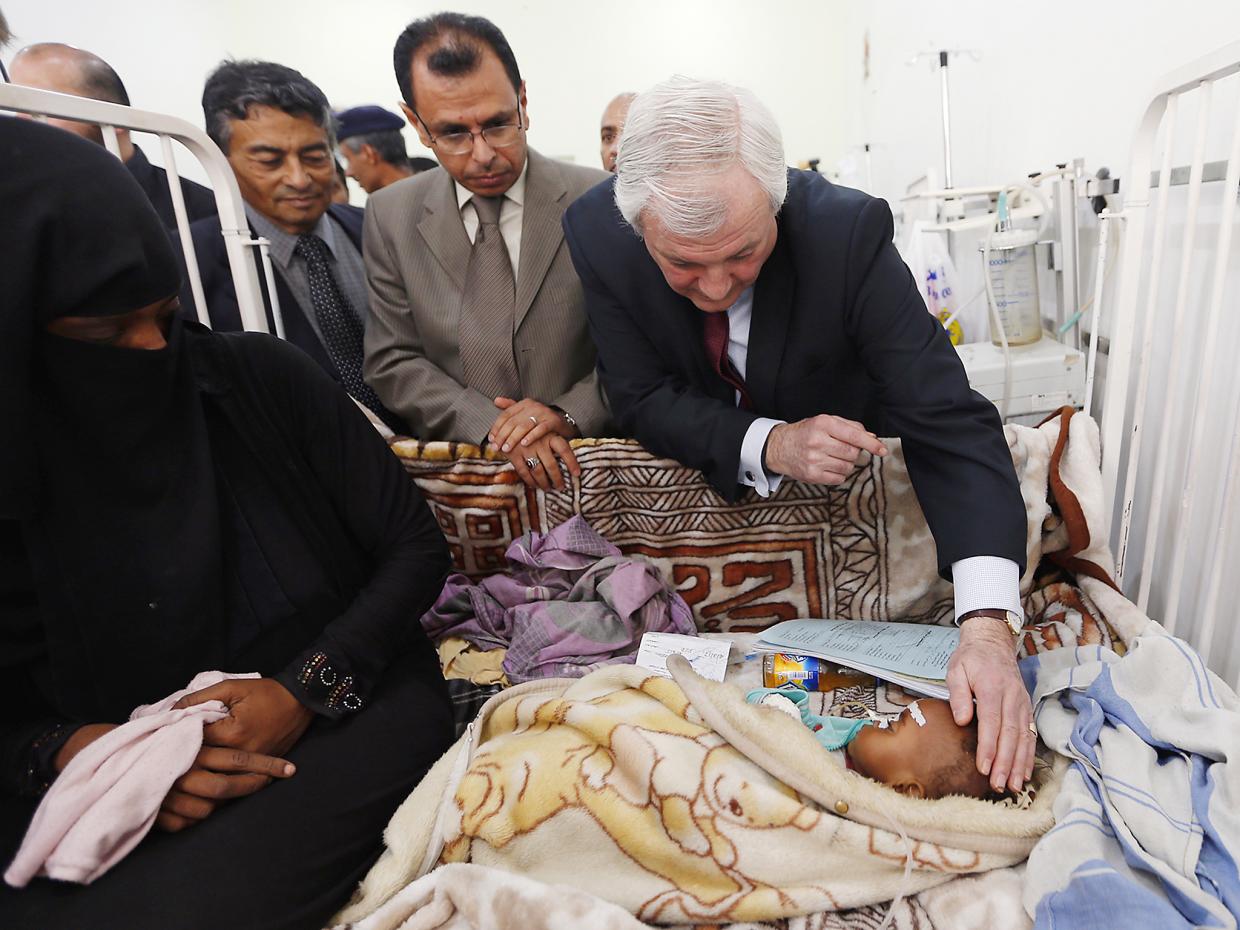Bustling, buzzing and bartering. That is how I would once have described a typical market (or souk) in Yemen.
Not any longer. These days they’re often barren and lifeless. During my many visits, I’ve seen the devastation of once busy souks destroyed by Saudi coalition airstrikes. Skeletal structures of buildings and stalls lie empty where once vibrant businesses sold coffee, spices, locally-grown fruits and vegetables, clothes and children’s toys.
By contrast, on the other side of the world a lucrative market in high-tech weaponry is positively thriving. Over the past two years, the UK and the US have sold billions of pounds’ worth of arms to Saudi Arabia, arms used to obliterate Yemeni markets and much else.
In Yemen, I’ve met countless victims of airstrikes who’ve lost loved ones or had livelihoods destroyed, leaving them impoverished and destitute. After two years of this, the country is facing a humanitarian disaster of epic proportions, with more than 18 million Yemenis requiring humanitarian assistance.
On the one hand, the UK and US have supported Yemen with around £371.5m in aid during the past two conflict-ridden years. On the other, British and American arms companies, with the authorisation of the UK and US governments, have busily supplied much of the weaponry that Saudi Arabia has used for its devastating attacks in its southern neighbour.
The situation in Yemen
Since the war started in March 2015, the UK Government has approved no less than 194 export licences for arms and related equipment to Saudi Arabia, worth more than £3.3bn (or around 10 times that combined UK-US aid sum). Resisting a sustained chorus of calls to halt arms exports after numerous airstrikes by the Saudis that have violated the laws of war, the UK has repeatedly fallen back on arguments about “assurances” it had received from Riyadh about investigations of more careful targeting.
Similarly, the US sold a record amount of arms to Saudi Arabia under President Obama’s administration, with sales set to continue under President Trump. Earlier this month the State Department approved a resumption in the $300m sale of US-made precision-guided missiles, a deal blocked late in Obama’s administration due to (belated) concerns over civilian casualties.
These arms sales are in contravention of international law. The UK, once a champion of the landmark Arms Trade Treaty (which seeks to stem the flow of weapons that could be used for war crimes and other serious violations), is now acting in brazen violation of it. The UK has ratified the treaty, so it is bound by its rules; and as a signatory, the US must not take any action to undermine its object and purpose, one of which is to reduce human suffering.
With arms being shipped to Riyadh at a furious rate, the civilian death toll has risen quickly. The Office of the UN High Commissioner for Human Rights recently reported that more than 4,600 civilians have been killed and over 8,000 injured in the conflict to date.
To be sure, Houthi opposition forces have killed and injured civilians in Yemen with impunity using imprecise battlefield weapons in residential areas, displaying a total disregard for civilian lives. Such indiscriminate attacks violate the laws of war and may amount to war crimes. At the same time, OHCHR reports that airstrikes have been the “single largest cause of casualties”, with the Saudi-led coalition relentlessly pummelling Yemeni homes, hospitals, factories and funeral halls.
 UN humanitarian aid chief Stephen O’Brien looks at a child during a visit to the Mother and Child hospital in the Yemeni capital Sanaa Getty
UN humanitarian aid chief Stephen O’Brien looks at a child during a visit to the Mother and Child hospital in the Yemeni capital Sanaa Getty UN humanitarian aid chief Stephen O’Brien looks at a child during a visit to the Mother and Child hospital in the Yemeni capital Sanaa Getty
UN humanitarian aid chief Stephen O’Brien looks at a child during a visit to the Mother and Child hospital in the Yemeni capital Sanaa Getty











No comments:
Post a Comment